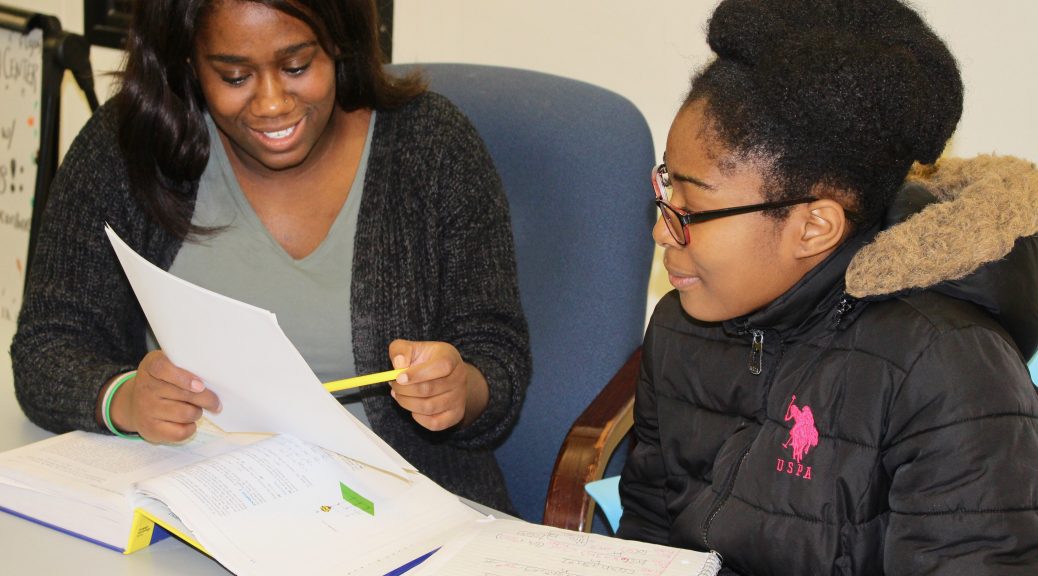NASHVILLE, Tenn. (TSU News Service) – A key Tennessee State University student help program has received national and international recognition.
The Learning Support Centers, which provide help to students in math, writing and reading, have received the College Reading and Learning Association certification.
More than 1,000 college tutor-training programs around the globe have received CRLA certification under its international tutor-training program.

The certification provides recognition for program credibility, as well as sets professional standards of skills and training for tutors and mentors. This also ensures accountability, TSU officials say. Both the center and tutors are evaluated annually to ensure continued CRLA high standards.
“It is important that we have professional standards and training for our tutors that are within the guidelines of best practices,” says Tiffany Bellafant Steward, assistant vice president for Enrollment Management and Student Success.
She says although the university positively reinforces the work of staff and peer tutors, the CRLA certification provides them additional opportunities to excel at what they do and “to provide exceptional service to our students.”

The TSU CRLA certification, which was granted in September, came after a review process of every aspect of the Learning Support Centers. The LSCs include a math center, a reading center, and a writing center.
Olivia Watson, a senior criminal justice major with a minor in sociology, from St. Louis, Missouri, has been a peer tutor in the Math Center for the last two years. She tutors college algebra and also helps with English.

“Being certified makes me feel a lot better because now I have something to show students if I have to tutor them,” says Watson. “This is something I can even take outside the university to help others because now I am certified. It kind of adds to my value.”
And that is exactly the goal for the CRLA recognition – to add value to what peer tutors do and to hold them accountable, says Thomas Hrycyk, coordinator of Tutoring Services in the TSU Student Success Center.
“A CRLA certification means there is a certain level of accountability to make sure what you are doing as peer tutors is providing the necessary help for the student you are tutoring,” says Hrycyk. “It means that there is an added level of expectation. If you want to come in and work with student A, that student can expect to have the same level of assistance as from anyone else she works with currently or in the future.”

Currently, the LSCs have 12 peer tutors and 14 staff tutors. Staff tutors, who are also certified, are either center staff or university professors, says Hrycyk. Although visitors seen at the center are generally freshmen, students up to graduate level are welcome.
“We turn nobody away if we feel we can help them out,” says Hrycyk.
Before students receive CRLA certification to be peer tutors, they undergo 10 hours of training that includes shadowing staff or senior peer tutors for a minimum of three hours. They also spend 25 hours of evaluated time tutoring students to become certified. To be accepted in the program, Hrycyk says, an applicant must have 30 or more credit hours with a 3.0 or higher grade point average, and have an A or B grade in the class or subject they want to tutor.
This level of preparation for peer tutoring is very assuring for Khasia Perry, a first-year economics and finance major, from St. Louis Missouri, who gets help in math.
“Knowing that the person helping me went through all this training makes me feel more comfortable and sure that I am getting the help that I need,” says Perry. “It is very important to me that I can trust this person and know what they are saying to me is based on knowing that they are also being monitored.”
According to Hrycyk, peer tutors are anonymously surveyed periodically throughout the year to get student evaluation of their work. He said the LSCs average about 700 appointments a month from students who need help.
For more information on the TSU Learning Support Centers, go to http://www.tnstate.edu/aeao/learning-support-centers.aspx
Department of Media Relations
Tennessee State University
3500 John Merritt Boulevard
Nashville, Tennessee 37209
615.963.5331
About Tennessee State University
With more than 7,000 students, Tennessee State University is Nashville’s only public university, and is a comprehensive, urban, co-educational, land-grant university offering 38 bachelor’s degree programs, 24 master’s degree programs and seven doctoral degrees. TSU has earned a top 20 ranking for Historically Black Colleges and Universities according to U.S. News and World Report, and rated as one of the top universities in the country by Washington Monthly for social mobility, research and community service. Founded in 1912, Tennessee State University celebrated 100 years in Nashville during 2012. Visit the University online at tnstate.edu.
